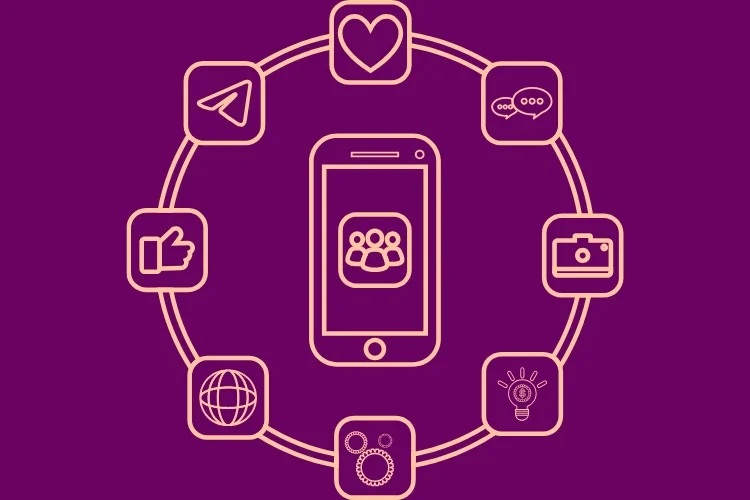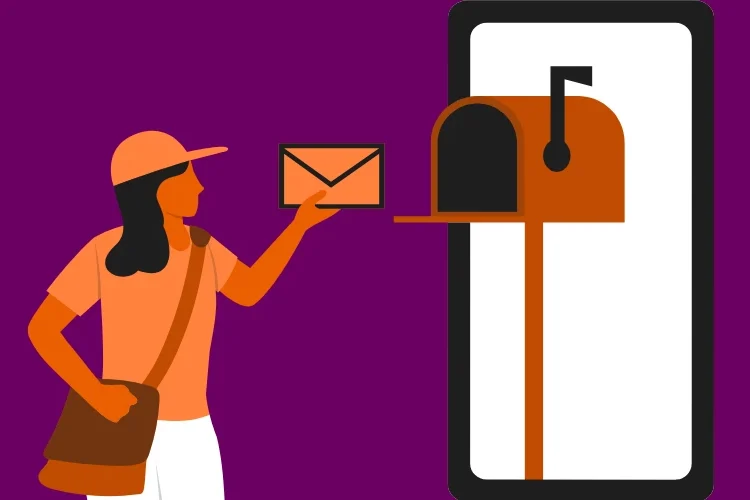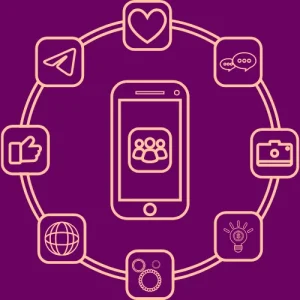Customer Relationship Management (CRM) is no longer just a “nice-to-have” for eCommerce businesses — it’s an essential tool for scaling, personalizing, and refining your online retail operations. With the rise of advanced technologies like AI and predictive analytics, the best CRM for eCommerce can revolutionize customer interactions, drive higher retention rates, and boost revenue.
Are you leaving money on the table because of outdated or inefficient customer management systems? If so, this guide will help you discover the best CRM for eCommerce in 2025 and how it can transform your business.

Table of contents
Understanding eCommerce CRM Software
What Is the Meaning of eCRM?
eCRM stands for electronic customer relationship management. It uses digital tools to manage a company’s customer relationships.
How does eCRM work?
- Collects data: Gathers customer interaction data from websites, social media, and email.
- Analyzes data: Examines customer behavior, preferences, and purchasing patterns.
- Personalizes experiences: Uses insights to tailor customer experiences and marketing.
The Connection Between eCRM and eCommerce CRM Software
“eCommerce CRM Software” is a type of Customer Relationship Management (CRM) system tailored for online businesses, while “eCRM” (electronic Customer Relationship Management) encompasses all digital customer interactions. Essentially, eCommerce CRM software is a subset of eCRM, designed specifically to manage customer relationships within an online store. If you’re looking for the best CRM for ecommerce, understanding their connection is key.
Key points to consider:
- Digital channels: Both eCRM and eCommerce CRM use digital channels like websites, emails, and social media, unlike traditional CRM, which may include phone calls or in-person interactions.
- Customer data: Both systems analyze online customer data to track buying patterns, preferences, and behaviors, enabling targeted marketing and personalized experiences.
- E-commerce platform integration: The best CRM for ecommerce integrates seamlessly with online store platforms, gathering real-time data on purchases, browsing habits, and cart abandonment to provide a complete view of customer activity.

What Is the Difference Between CRM and eCRM ?
The difference between CRM and eCRM lies in how businesses interact with their customers through various channels:
Customer Relationship Management (CRM)
- CRM relies on traditional methods like phone calls, in-store interactions, and even fax to manage customer relationships.
- It helps businesses streamline sales, marketing, and customer support efforts.
- By focusing on these core activities, CRM strengthens customer relationships and boosts satisfaction.
Electronic Customer Relationship Management (eCRM)
- eCRM enhances CRM by using digital tools such as email, social media, mobile apps, and websites.
- It’s specifically designed for online and e-commerce businesses, making it the best CRM for ecommerce.
- eCRM analyzes customer data to better understand preferences, behaviors, and purchasing habits.
Why eCRM is Ideal for Ecommerce
- eCRM enables businesses to create personalized marketing campaigns tailored to customer needs.
- It integrates seamlessly with ecommerce tools like payment gateways and shopping carts, simplifying the buying process.
- By using the best CRM for ecommerce, businesses can elevate the customer experience through customized interactions.
What are the types of e-CRM and CRM systems in eCommerce?
Electronic Customer Relationship Management (eCRM) and Customer Relationship Management (CRM) systems are crucial for enhancing customer interactions and driving growth. When it comes to finding the best CRM for ecommerce, understanding the key types and how they work is essential:
Types of eCRM Systems
eCRM systems help businesses manage customer relationships through digital platforms, making them some of the best CRM options for ecommerce. Here’s a breakdown of the main types:
- Operational eCRM: Automates tasks like customer service, marketing, and sales through online tools, saving time and boosting efficiency. A must-have for ecommerce businesses.
- Analytical eCRM: Analyzes customer data to improve marketing, sales, and support strategies. It identifies trends and preferences, helping ecommerce brands personalize campaigns.
- Collaborative eCRM: Enhances communication between customers, teams, and businesses, creating a seamless ecommerce experience for everyone involved.
- Social eCRM: Leverages social media to engage with customers, gather feedback, and monitor brand sentiment, strengthening relationships in the ecommerce space.
- Geographical eCRM: Tailors marketing efforts based on customer location with Geographical eCRM, making content more relevant and impactful for ecommerce audiences.
If you’re looking for the best CRM for ecommerce, these eCRM systems offer powerful solutions to improve customer experiences and boost growth.
Types of CRM Systems in eCommerce
CRM systems designed for eCommerce simplify customer relationship management. If you’re searching for the best CRM for eCommerce, here are the key types to consider:
- Operational CRM: Streamlines tasks like sales, lead generation, and order management, helping businesses run more efficiently.
- Analytical CRM: Analyzes customer data to identify trends and predict behavior, enabling smarter business decisions.
- Collaborative CRM: Shares customer data across departments, ensuring teams work together to deliver a seamless customer experience.
- Strategic CRM: Supports targeted marketing campaigns, such as email and social media efforts, to boost sales and engagement.
Finding the best CRM for eCommerce comes down to selecting a solution that aligns with your specific goals.

Why You Need an eCommerce CRM for Your Business
The Big Benefits
The best CRM for eCommerce can transform your business in multiple ways. For example, it can:
- Boost Customer Retention: Track customer interactions to create personalized shopping experiences that keep them coming back.
- Streamline Marketing Automation: Automate tasks like cart recovery emails, product recommendations, and seasonal discount campaigns.
- Provide Actionable Insights: Use real-time data to better understand customer behavior and enhance your strategies.
How CRMs Optimize Key Functions
Here’s how the best CRM for eCommerce can transform your daily operations:
- Marketing Automation: Schedule emails, manage social media ads, and target specific customer groups more efficiently.
- Upselling & Cross-Selling: Recommend relevant products based on purchase history to boost sales.
- Order Management: Streamline tasks like package tracking, handling returns, and customer communication.
Overall, the best CRM for eCommerce simplifies workflows, enhances automation, and provides valuable insights. This helps you deliver better shopping experiences, build customer loyalty, and focus on growing your business.
How to Choose the Best CRM for Your eCommerce Business
When selecting your ideal CRM, consider the following factors:
1. Scalability
- Startups may benefit from lightweight, budget-friendly CRMs like HubSpot CRM.
- Enterprises may need robust functionality through options like Salesforce Commerce Cloud.
2. Integration Compatibility
Does the CRM work effortlessly with tools you already use? Look for compatibility with platforms like Shopify, BigCommerce, or WooCommerce.
3. Cost Effectiveness
Balancing budget and features is critical:
- Low-Cost Option: CRMs like Zoho CRM or Freshsales offer free or affordable limited plans.
- Premium Option: Tools like Salesforce offer advanced features but come with higher costs.
4. Feature Priorities for Business Models
- DTC Brands (Direct-to-Consumer): Focus on lifecycle management and hyper-personalized UX.
- Multichannel Retailers: Look for CRMs emphasizing streamlined omnichannel coordination.
- Subscription Businesses: Prioritize CRMs handling subscription renewals, churn reduction, and customer retention.

Comparing the Best CRM for eCommerce Software in 2025
- Omnisend is an email marketing platform that offers a variety of features, including:
- Email builder: A drag-and-drop editor with a large selection of email templates
- Automation: The ability to send automated emails in response to user actions
- Segmentation: The ability to segment deliveries based on behavior data
- SMS marketing: The ability to send SMS messages
- Push notifications: The ability to send push notifications
- Custom audiences: The ability to create custom audiences on Facebook
- Customer match: The ability to use Google Customer Match
- Popups and forms: The ability to create popups and forms
- Reporting: The ability to generate reports
- AI subject line generator: The ability to use AI to generate subject lines for email campaigns
- Integration: The ability to integrate with 30 apps
Omnisend’s mission is to help ecommerce businesses send personalized messages to the right people at the right time. Some say that Omnisend is a good option for small and medium businesses because it’s relatively inexpensive.
- HubSpot CRM key features include: a centralized contact database, lead tracking, sales pipeline management, email marketing integration, contact management tools, deal tracking, task automation, company information tracking, reporting and analytics, all within a user-friendly interface, with the notable benefit of being largely free to use.
Key points about HubSpot CRM features:
- Centralized data storage:
Stores all customer information in one place, including contacts, companies, deals, and interactions. - Lead tracking:
Captures and tracks leads from various sources, allowing for effective lead nurturing. - Sales pipeline management:
Visualizes the sales process with stages, allowing users to easily monitor deal progress. - Email marketing integration:
Seamlessly connect with email marketing tools to send targeted campaigns directly from the CRM. - Contact management:
Detailed contact profiles with comprehensive information about each customer. - Task automation:
Set up automatic reminders and follow-up tasks to streamline sales activities. - Company information tracking:
Access details about a company’s structure, employees, and website. - Reporting and analytics:
Gain insights into sales performance with customizable reports and dashboards.
What makes HubSpot CRM unique:
- Free tier: Offers a robust free version with many core features, making it accessible to businesses of all sizes.
- Intuitive interface: Easy to learn and use, even for non-technical users.
- Integrated marketing and sales: Seamlessly connects marketing activities with sales efforts within a single platform
Here’s a quick comparison of some of the top CRM platforms for eCommerce this year:
| CRM Solution | Best For | Key Features | Price Range |
|---|---|---|---|
| HubSpot CRM | Startups | Free version, marketing automation, pipeline tracking | Free – $45/month |
| Zoho CRM | Budget-Friendly Options | Custom workflows, multichannel integration | Free – $20/month |
| Salesforce | Enterprises | AI/ML insights, robust integrations | $25 – $300/month |
| Pipedrive | Ease of Use | Visual sales pipelines, task automation | $14.90 – $99/month |
| Freshsales | Customer Engagement | Built-in phone system, AI-powered insights | Free – $69/month |
| Omnisend | Marketing Automation | 24/7 live chat & email customer support250+ beautiful email templatesPre-built workflows and segmentsPopups, signup forms & landing pages130+ integrations for better data syncSales & performance reportsList cleaning toolA/B testing & automation splits | Free – $41.30+/month |

Integration Insights for eCommerce Businesses
Benefits of Integration
- Streamlined Operations: Simplify workflows by syncing the best CRM for eCommerce with tools like email marketing platforms, inventory management systems, or accounting software.
- Unified Data Handling: Access all your customer data in one place for a full 360-degree view.
- Automation: Save time by automating repetitive tasks, like abandoned cart alerts or order confirmations, with the best CRM for eCommerce.
Potential Challenges to Watch For
- Compatibility Issues: Ensure the best CRM for ecommerce supports your existing tech stack.
- Learning Curve: Provide comprehensive training to employees to streamline CRM adoption.
- Cost of Setup: Take into account installation, customization, and training fees when selecting the best CRM for ecommerce.
Case Studies and Success Stories
Real-World Examples
Case Study 1
A boutique clothing store implemented Zoho CRM and increased repeat purchases by 35% through personalized email campaigns.
Case Study 2
A skincare DTC brand leveraged HubSpot CRM’s segmentation tools to improve cart recovery rates by 20% within three months.
Measurable Results
- Higher customer retention.
- Enhanced conversion rates.
- Insightful data metrics for improved decision-making.
The Future of eCommerce CRMs
Emerging Trends to Watch
- AI-Powered Features:
- Predictive analytics for customer behavior forecasting.
- Smart chatbots for real-time customer support.
- Mobile-First CRM:
- Manage operations from your phone.
- Social Commerce Integration:
- Deeper connectivity with Instagram, TikTok, and other platforms to improve conversions.
Actionable Tips for CRM Success
- Train Your Team:
Make sure all stakeholders are comfortable using the CRM platform.
- Use Segmentation Wisely:
Divide your audience for more targeted campaigns.
- Review Analytics:
Regularly analyze CRM reports and adjust your strategies accordingly.
- Start Small:
Integrate CRMs gradually to ensure a seamless transition.
Take the Next Step in eCommerce CRM
Integrating the best CRM for eCommerce into your business is no longer a luxury—it’s a necessity for staying competitive and driving sustainable growth. With the right platform, proper team training, and smart use of data insights, you can build stronger customer relationships and boost your sales performance. Start small, stay consistent, and adapt your strategies to meet evolving customer needs. Investing in the best CRM for eCommerce today will lead to lasting rewards in customer loyalty and business success. Take the leap and transform how you connect with your audience!






Leave a Reply